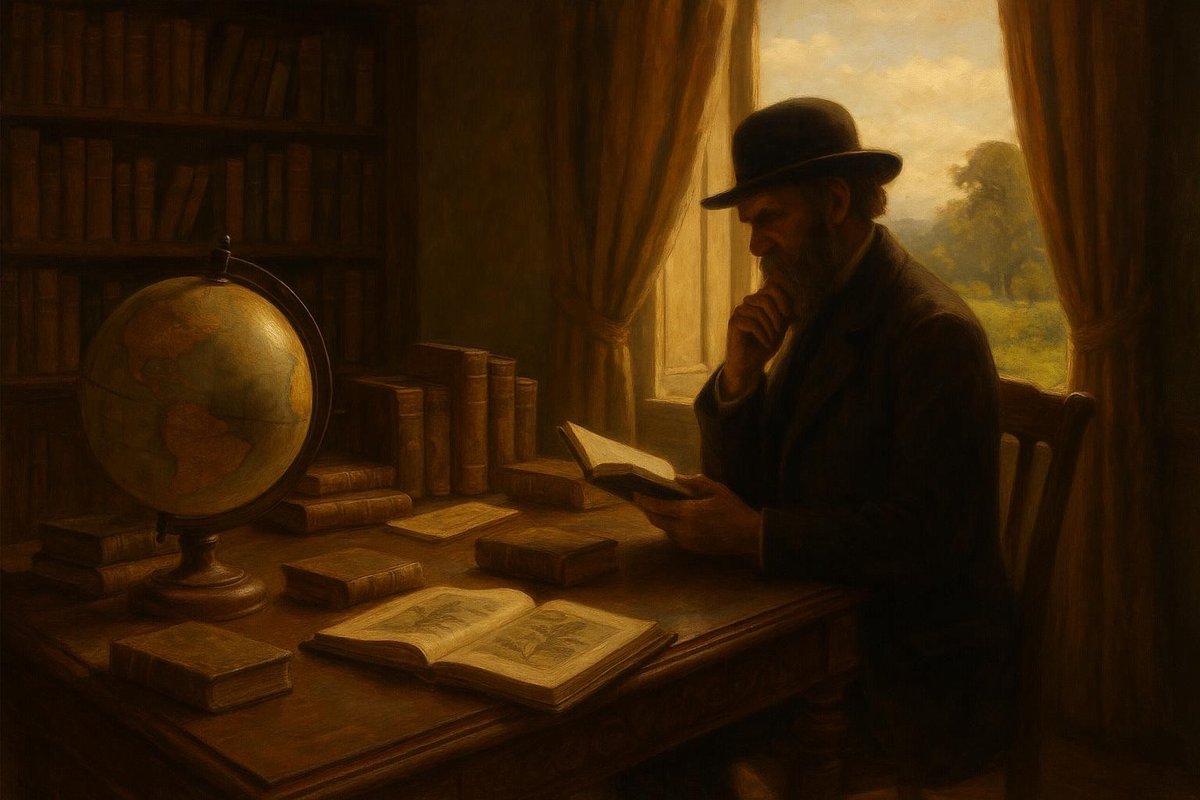
Unpacking the Question: Evolution Beyond the Obvious
What if evolution is more than a scientific theory? It’s a question that tantalizes many, for evolution is not just about survival and adaptation. It’s an intellectual odyssey that invites us to ponder our origins and purpose.
Before Darwin’s grand revelation, the natural world seemed a straightforward tapestry woven by a divine hand. Yet, Darwin’s theory presented a new loom — one of chance, variation, and selection, challenging the notion of static creation.
- Pre-Darwin: Nature as divine design.
- Post-Darwin: A dynamic, ever-changing process.
This concept emerged from a backdrop of Enlightenment thinking, where curiosity and skepticism paved the way for scientific inquiry. It’s no wonder Darwin’s ideas could flourish in such a fertile intellectual soil, reshaping humanity’s self-image.
Surprising Facts: Evolution and Its Unseen Dilemmas
Interestingly, evolution does more than explain biological change; it raises philosophical dilemmas that intrigue scholars and thinkers alike. Consider the notion of purpose.
- Does evolution imply a purpose, or is it an aimless process?
- Can randomness coexist with a sense of meaning?
Many people wonder if evolution negates the need for a divine architect. It doesn’t necessarily dismiss spiritual narratives but offers a new lens through which to explore them.
How does one reconcile the vastness of geological time with individual significance? Such questions reveal evolution as more than a biological framework; it’s a mirror reflecting philosophical quandaries that shape our lives.
What Science Says: The Mechanisms Behind Change
In the grand tapestry of life, evolution is the thread connecting past and present. But how does this thread weave its magic? Science provides an insightful journey into the mechanisms at play.
- Variation: The subtle differences among individuals in a population.
- Natural Selection: The process where beneficial traits prevail.
- Genetic Drift: Chance events that affect populations.
Each mechanism adds a layer of complexity, prompting deeper inquiries into why life unfolds as it does. Evolution, in its elegant simplicity, teaches us that change is the only constant.
Yet, this realization stirs debates. Is natural selection a cruel process, or does it reveal nature’s wisdom? The answers lie not just in science, but in the philosophical reflections it inspires.
What It Means for Us: Reflecting on Humanity’s Place
As time goes on, evolution’s implications stretch beyond biology, touching the very essence of human identity. It challenges us to rethink our place in the cosmos.
- Are humans just another step in a long evolutionary chain?
- How does this perspective influence our understanding of morality and ethics?
Some argue that evolution empowers humanity, highlighting our adaptability and resilience. Others see it as a humbling narrative, reminding us of our shared ancestry with all life forms.
Ultimately, evolution invites us to ponder the balance between individuality and the collective story of life. It is both a scientific truth and a philosophical enigma, endlessly inspiring curiosity and reflection.
Fuel Someone Else’s Curiosity
Share this exploration of evolution’s philosophical depths with others. Let’s ignite conversations that bridge science and humanities, fostering a deeper understanding of our world and ourselves.

Leave a Reply